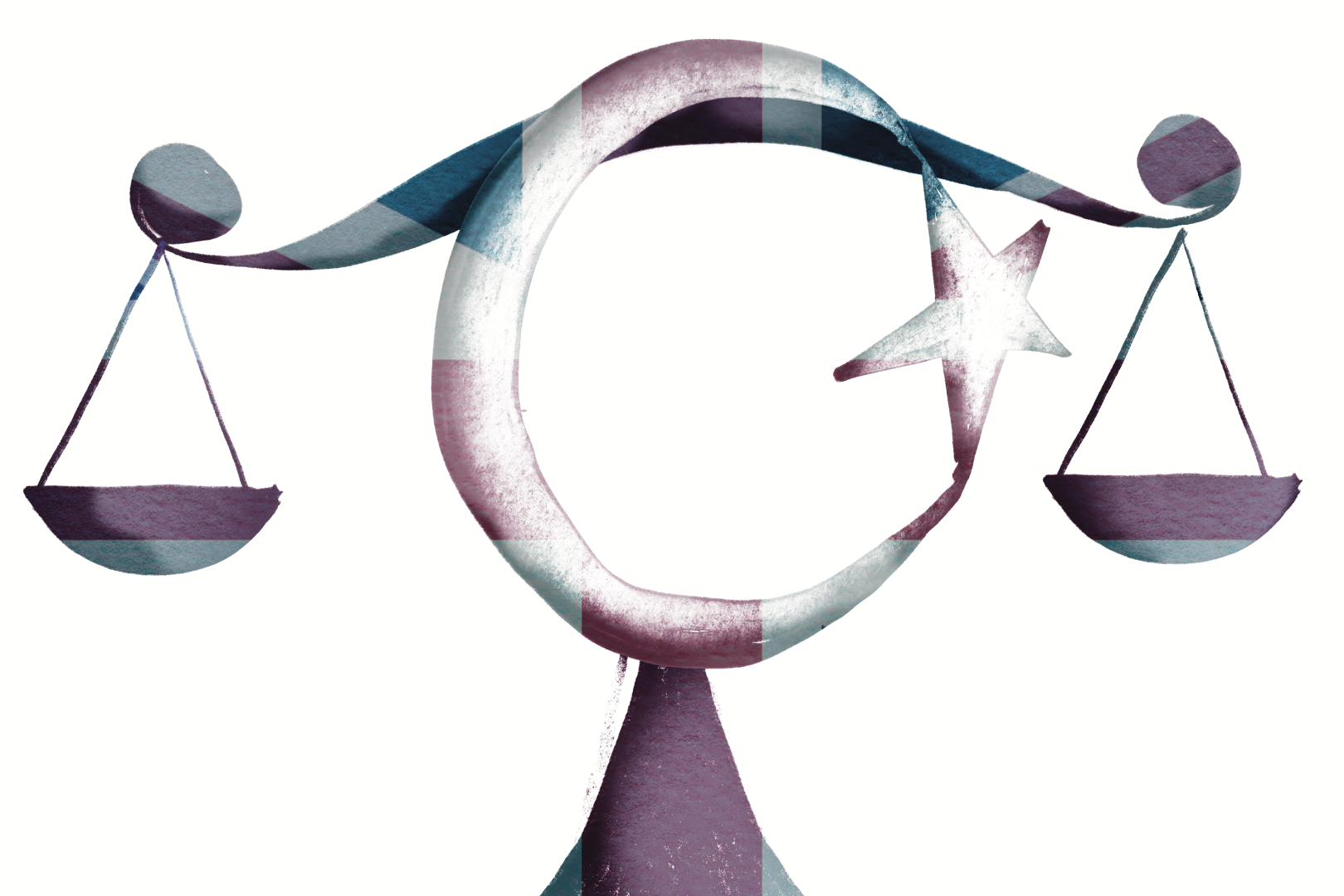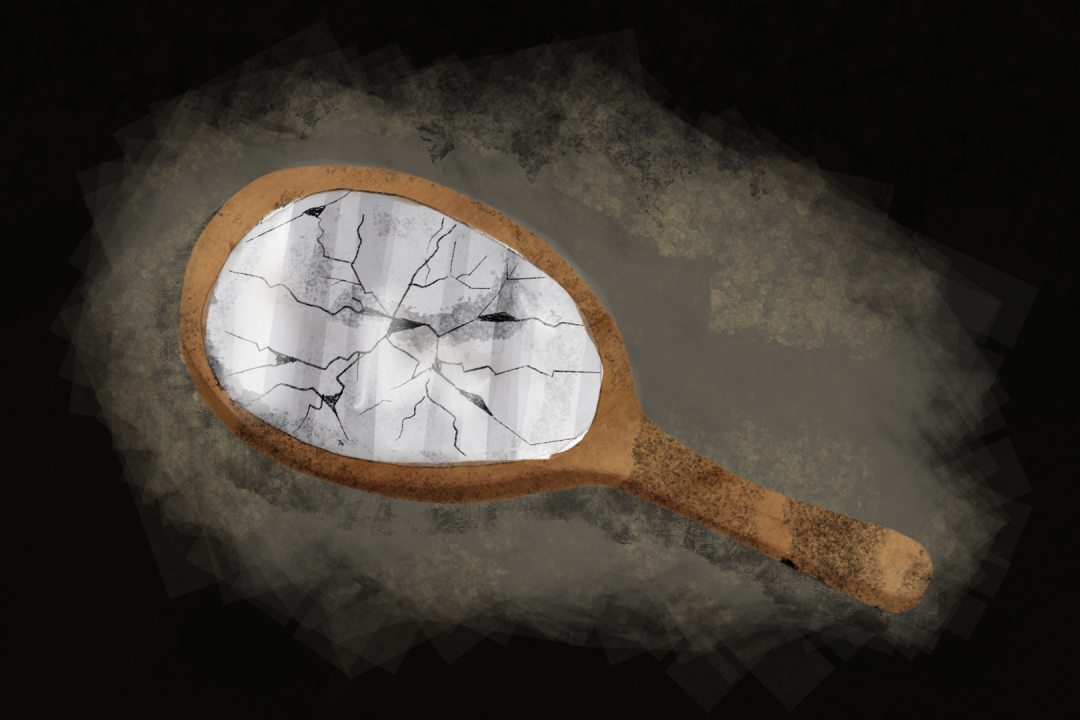
Colonization and Muslim Family Law: An Examination of Sharia Councils in Britain
In feminist discourse, legal systems are presented paradoxically as the lynchpin of gender equality and also its principal hindrance. Manifestations of gender inequality in legal systems are more tangible to conceptualize once we understand the law as a dynamic, normative outcome of the cultural, social, and political contexts from which it evolved1. Sharialaw in Europe has also been conceptualized as a legal system operating in parallel and existing mutually exclusive to state law. Family law is the core of Sharialaw, and having survived many encroachments of European code during the late Ottoman Empire, it has itself become a sanctification of moral values in Islam. Coherent to many other institutions encoding the family and the private sphere, it is also highly gendered. As a result, polemics against Islam have pitted Muslim women as the apogee of the ‘culture-clash’.
Britain is an interesting case as England’s approach to integration has indeed been celebrated for its ‘tolerance’. It has even been noted that “Nowhere in Europe or North America is the legal system closer to ‘recognizing’ Islamic judgments than in England”.2 However, England’s passive, non-interference approach to a multicultural public policy has proved problematic for minority groups, specifically Muslim women. Considering multiculturalism not so much a political ideology but an awareness of the fundamental movement of peoples through migration can help us to understand its shortcomings. Locating British multiculturalism as the total consequences of immigration, the struggles of a range of marginalized groups, or a focus on group differences and an awareness of the ‘other’ are all imperative when illustrating the subordination of Muslim women in Britain today.
To begin unraveling the nexus in which legal systems, multiculturalism, and gender are intertwined, examining the case of Sharia Councils in Britain is a good place to start. What gave rise to ShariaCouncils, and why are they harmful to women?
Colonial Context and Non-Interference Policy
Initial relations between the United Kingdom and Sharialaw emerged from the conflation of violent and exploitative colonial endeavors in South Asia with their national public policies. The effect of these endeavors was so cataclysmic that many Muslim-majority countries previously colonized by Britain possess legal systems that are complex products of colonial imposition and post-colonial borrowing to this day. During the colonial period, Britain introduced several new legal rules that could be administered and enforced relatively easily by judges and rulers to facilitate their larger political agendas. Although the regulation of family law was less important in terms of wealth extraction or suppressing dissent, it was equally important for the colonial agenda. Moreover, as a result, colonial rulers were met with conflict as they discovered the tensions between public interest and private sensibilities of the family unit that accompanied Islamic family law. In such a manner, the appeasement measures instituted by such political caveats meant that neither legal systems endemic to South Asia were reformed in their entirety by the colonial administration. Bearing this in mind, it is important to consider the larger political context in which these colonial legal praxes were forged.
Specifically, it was the official British colonial policy in South Asia not to interfere with religious communities and their authorities on matters of personal and family law (divorce, marriage, inheritance, guardianship, etc.). In this context, it gave religious groups a considerable amount of religious autonomy, especially Muslims, which have endured from the colonial era until the present.
The introduction of India’s first civil marriage broadly served to consolidate confessional divides. Britain legalized civil marriage in 1836 by the ‘Act of Marriages in England, 1836’ and it was introduced to India in 1872 by the British colonial administration. Before this point, only marriages for Jews, Quakers, and those within the Church of England were recognized by the state. Concerning civil marriage, the law stipulated that only Christian Indians need to register their marriage through the British government. Hence, and by default, the British government permitted Muslim communities to abide and rule by their laws and traditions in the institution of marriage. These marriages were carried out by judges and authorities within the religious community but were equally recognized by the colonial administration. This was partly due to the reality that colonial administration lacked the conceptual tools to define marriage in secular, or de-“confessionalized” terms. The mechanism was noted as one of the earliest manifestations of ‘tolerance’ with regard to its contemporary integration model. In reality, it was a tool to divide ‘colonizer’ from ‘colonized’ and a taxonomic means to establish a system upon explicit confessional boundaries.
Unsurprisingly, the confessional divide acted as a powerful tool for the colonial agenda to differentiate between ‘natives’ and other ‘British subjects’, and the implementation of this limited jurisdiction had larger effects on Shariaas a result. Professor of South Asian history Nandini Chatterjee has noted that this transformation of Sharia into “Anglo-Muhammadan law” from the colonial authorities reduced it to embody both a generalized moral-spiritual code and a system of jurisprudence for a certain group.3 Consistently, it represented the reductionism of Sharia law that took place during the British governance in South Asia during the colonial era. It was endemic to the colonial authorities' creation of an ethnic-religious tradition and served as a jurisdictional criterion to consolidate ethnic divides.
The longevity and success of British colonial governance can no doubt be attributed to the small concessions it gave to the local population. The religious autonomy granted to the local population for matters of matrimony enfranchised the patriarchal religious authority at the community level. Community-based patriarchal religious structures, as well as family law in general, have been faulted with discriminating against women by upholding practices that treat men and women differently, exploiting loyalties, and depriving women of access to legal resources. Women received double subordination from the colonial authority and the local religious patriarchy as their legal rights were accommodated through one domain: the private sphere. The private sphere is relevant in the context of women and Sharialaw as one traditionally associated with where Muslim women reside and an arena in which family laws can legitimately be authorized. It is an arena where authoritarian and oppressive structures within a given social group are thus reinforced rather than dismantled.4
The Emergence of Sharia Councils in Britain
The appearance of Shariacouncils in Britain has occurred within the last 50 years and the legacy of non-interference from the colonial period can still be witnessed. Historically, Britain has demonstrated pro-active legislation to provide legal protection for Muslim women residing in Britain. Since the Recognition of Foreign Divorces and Legal Separations Act of 1971 deprived Muslim women of adequate financial compensation during divorce, the Matrimonial and Family Proceedings Act of 1984 gave British courts the authority to grant financial relief to a spouse in cases where the marriage had not been dissolved by the British court. Despite state legislation taking a more progressive direction, Shariacouncils outside of the public sphere were taking shape equally so. These councils emergedad hoc as a substantial jurisdictional authority within the Muslim community to perform court-like functions and presented a legal issue outside the control of state legislative reforms. These functions include advising on matters of family law or assisting in the negotiation of Islamic marriage contracts. As such, the councils gained particular attention for their function in pronouncing Islamic divorces for Muslim women.5
The importance of these councils also lies in the fact that for some Muslim women civil divorce through the state system is regarded as a mere formality and that a religious divorce is more important. Indeed, the councils have warranted many responses from the British state, and when addressing the issue of the councils the UK Parliamentary Under-Secretary of State for Justice Helen Grant asserted thatSharia councils are not part of the British court system. She continued to state that “their decisions or recommendations are illegal or contrary to public policy – including equality policies such as the Equality Act 2010 – or national law, (sic) national law will prevail all the time, every time.” A seemingly empty promise to Muslim women in Britain from a legal system infamously known for negligence towards them.
The ambiguous authority of the Arbitration Act of 1996 6stipulated that conditions for the fair resolutions of independent tribunals, the outcomes must be legally supported by the state. Thus, even though the councils themselves are non-binding the ruling of a Shariacouncil itself must be enforced by the British state. Henceforth, even when uncontested, divorce cannot solely be realized through private mediation and must involve the British legal system.
This was largely due to concerns regarding children’s welfare that arose from marital disputes and religious divorce for the British state.7 Britain has further initiated efforts for the religious institutions to which these councils are bound, such as Mosques, to apply to become places for civil marriage registration. This is because, even when uncontested, a divorce through private intercession cannot be recognized by the state.8 Such intervention has created confusion surrounding the Muslim woman’s legal marriage status in Britain. Hence, ‘limping marriages’, referring to a marriage that has been dissolved through a civil divorce but not according to religious precepts, have catalyzed since the emergence of these councils because civil divorce is regarded by some Muslims as a mere formality and often occurs before a religious divorce. Women may also choose to use these councils for practical resolutions for religious divorce rather than making an ideological decision.9 Hence, the lack of understanding from the standpoint of the British state regarding Sharia law is rendering their own legislative efforts futile.
Threat to women’s legal autonomy
More recently, thesead hocSharia councils have been criticized and deemed a threat to women's access to justice and legal agency. As stated previously, Sharia councils are usually linked to a particular Mosque and were set up ad hoc as a response to civic demands from the Muslim community. Legal scholar and specialist in Muslim family law Dr. Samia Bano stated in her “exploratory study ofSharia councils in England with respect to family law” that there is no authoritative definition of Sharia councils.10 In effect, these councils serve the ad hoc legal needs of the community. In a video documentary created by The Guardian in 2011 aboutSharia councils in the UK, the Secretary of the Birmingham Sharia council Dr. Suhaib Hasan affirmed that the councils have no legally binding power. Dr. Suhaib Hasan asserted that the councils “serve rather as the moral support of the community.”11 In this context, the use of the word ‘moral’ is indicative of the way these councils are ethnicized to validate social control in Britain: Muslims inherit a group value system whereas Christians can choose individual morals selectively.
As such,Sharia councils reinforce notions of group autonomy wherein individual rights may be compromised. Cultural imperatives are favored and encouraged by these councils, which place the woman’s autonomy at risk. Autonomy is compromised in a group setting, specifically for women in the multicultural context. Sometimes, moreover, "culture" or "traditions" are so closely linked with the control of women that they are virtually equated.12 Unsurprisingly, a report from the Committee on Legal Affairs and Human Rights investigated the compatibility of Sharia law with the European Convention on Human Rights in 2016 and stated that women faced various forms of gendered discrimination in these councils.14
Similarly, the emphasis placed on ‘cultural’ reform from these councils spearheads Muslim women as responsible for the “gender-culture” clash. The “Independent review into the application of Sharia law in England and Wales” of 2018 commissioned by the British state shed light on the “cultural” practices ofSharia councils in Britain. While the review expressed many concerns regarding incompatible ‘cultural’ practices of Muslims living in the UK, it concluded that ‘cultural’ and legal reforms were needed amongst the Muslim community, especially in the areas of marriage, divorce, and women’s rights.15 It is evident that even bodies who aim to promote Muslim women’s autonomy invoke ‘culture’ abstractly and selectively in relation to characteristics and behavior of minorities; a focus that implies a “gendered dimension of the culture clash hypothesis”. 16This view also overlooks the specific manner in which gender structures social relations, and in which a specific practice enforces power relations.17 For example, the backlash a woman may receive from the community for leaving an abusive marriage may divert any attention away from the gender discrimination taking place in the private sphere. Not forgetting that ‘cultural reforms’ are primarily suggested from the state level, women are thus subjected to a dual prejudice from the state and their community.
A tendency that is equally problematic is the ethnicization of Islamic divorce in Britain. While Britain is aware of Islamic divorce taking place in Sharia councils it encourages Muslims to register their marriages civilly. Interestingly, the Marriage divorce report from the Muslim Women’s Network UK stated that Islamic divorce proceedings generally happened faster if there was evidence of a civil divorce.18 Indeed, if the council can consider a civil divorce legitimate, why can the state not engage with a religious divorce? This is indicative of the way in which Islam is ethnicized by the state. Divorces done at the state level are seen as ‘logical’ and ‘rational’ whereas religious divorces are considered ‘cultural’. 19The rhetoric further suggests that non-Western family law and practices are ‘cultural’, whereas European ones are ‘rational’. In either case, religious divorces are systematically denied legitimacy and are not given structural attention for reform.
Recent developments
The recent discourse aroundSharia councils and Muslim women’s autonomy suggests that there is scope for change. The British Academy Policy Centre’s report on Minority Legal Orders in the UK suggests that the British state can promote religio-legal autonomy beyond simply permitting religious orders to operate outside of the state nexus and suggests that the state could implement a process of ‘mainstreaming’. This would entail the state’s active endorsement, incorporation, or adoption of the social norm of the minority legal order within the state legal system.20 This legal concession could grant women more autonomy regarding Islamic marriage and divorce and the existing patriarchal religious administration would enjoy less authority. Nonetheless, tangible change for women will only come to fruition when the British state both ends its insistence on non-interference and promotes such flexibility to provide legal protection for marriage not registered civilly.
Britain’s legal navigations with Sharia law have demonstrated its legal shortcomings in the promotion of women's autonomy. Britain’s non-interference with Sharia Law has taken a different shape and has witnessed the surfacing of Sharia councils ad hoc. These councils undermine standards of gender equality and have justified structural exclusion of Muslim women from the state. Onwards, we must critically reflect on the role that law and legal systems play in gender relations.
1Andrea Büchler. “Cultural Diversity And Law: Islamic Law In Europe?: Legal Pluralism And Its Limits In European Family Laws”. Ashgate Publishing Group, (2011): 16
2John R. Bowen, Keynote Address, How Could English Courts Recognize Shariah?, 7, University of St. Thomas Law Journal, (2010): 411
3Nandini Chatterjee,. “English Law, Brahmo Marriage, and the Problem of Religious Difference: Civil Marriage Laws in Britain and India”, Comparative Studies in Society and History, 52 (3) 2010: 537
4Andrea Büchler. Cultural Diversity And Law: Islamic Law In Europe?: Legal Pluralism And Its Limits In European Family Laws. Ashgate Publishing Group, (2011): 90
5Samia Bano. “An exploratory study of Shariah councils in England with respect to Family Law.” Ministry of Justice / University of Reading, (2012): 4
6U.K Arbitration Act of 1996; https://www.legislation.gov.uk/ukpga/1996/23/section/1
7John R Bowen. Keynote Address, How Could English Courts Recognize Shariah?, 7 U. St. Thomas L.J. (2010): 412
8Ibid
9Samia Bano. “An exploratory study of Shariah councils in England with respect to Family Law.” Ministry of Justice / University of Reading, (2012): 7
10Ibid: 4
11"Inside A Sharia Divorce Court". 2021. https://www.youtube.com/watch?v=Ctyr5FaZJtI.
12Susan Moller Okin, et al. Is Multiculturalism Bad for Women? Eds: Joshua Cohen, Matthew Howard, Martha C. Nussbaum. Princeton, New Jersey. Princeton University Press, (1999): 21
13Examples of such discrimination include women being pressured into mediation, including for victims of domestic abuse; greater weight being given to the husband’s accounts of reasons for divorce; women not being questioned by council members, who are almost all men, in an impartial manner and feeling blamed for the breakdown of the marriage; marital rape not being recognised as rape; and unjustified requirements to repay the mahr (dowry).
14Committee on Legal Affairs and Human Rights, Compatibility of Sharia law with the European Convention on Human Rights: can States Parties to the Convention be signatories of the ‘Cairo Declaration’? Introductory Memorandum, AS/JUR, 28, 7 October, (2016)
15Ibid: 6
16Catherine Powell. ‘Lifting Our Veil of Ignorance: Culture, Constitutionalism, and Women’s Human Rights in Post-September 11 America’, Hastings Law Journal 57, (2005): 334
17Andrea Büchler. “Islamic family law in Europe? From dichotomies to discourse – or: beyond cultural and religious identity in family law”, International Journal of Law in Context, 8,2 Cambridge University Press, (2012): 208
18Shaista Gohir. Information and Guidance on Muslim Marriage and Divorce in Britain, Muslim Women's Network, (2016): 58-59
19Andrea Büchler. “Islamic family law in Europe? From dichotomies to discourse – or: beyond cultural and religious identity in family law”, International Journal of Law in Context, 8,2 Cambridge University Press, (2012): 208
20Maleiha Malik. Minority Legal Orders in the UK: Minorities, Pluralism and Law. British Academy, London. (2012): 44-5


